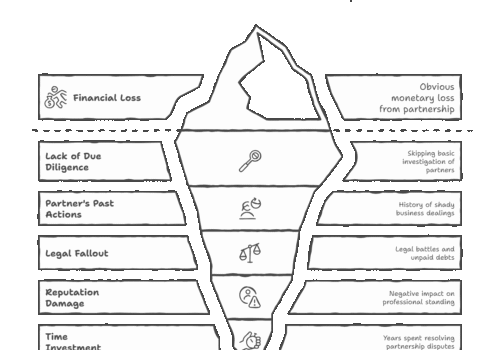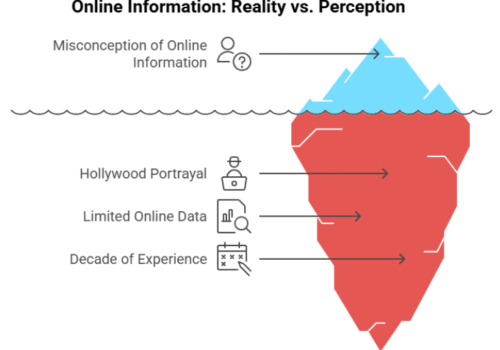Gun Background Check Timeline: Factors Affecting the Process & What to Expect

So, you’re considering purchasing a firearm. That’s a big decision, and an exciting one too. But after the initial excitement, reality often taps you on the shoulder: the gun background check. Suddenly, what seemed like a simple transaction becomes a bit…murky. How long will it take? Are there things that could cause a delay? These are questions that I hear constantly, from first-timers and seasoned gun owners alike. It’s a common concern, and a valid one.
Navigating the labyrinth of gun laws and the NICS (National Instant Criminal Background Check System) can feel, well, a bit overwhelming, to say the least. The truth is there just isn’t a single, definitive answer about how long the whole process can take. So many different bits and pieces are in play regulating firearms purchases and approvals! Factors span from federal regulations to the specifics of your state legislation, and even aspects of your history can impact things.
That’s why I’m writing this. Through my work assisting individuals through this process, I’ve seen every possible complication. I want to cut through the layers of complexity to give simple, useful advice. This article isn’t just about the facts; it’s designed to demystify the gun background check, help you understand what to expect, and, ultimately, equip you with the knowledge you need for a smooth path to ownership. I’ll share insight and experiences from my years in the field to guide you through.
The Baseline: What Federal Law Says
At the heart of the process of firearm purchase lies the National Instant Criminal Background Check System, often referred to as NICS. Created way back in 1998, this system, run by the FBI, works to keep guns out of the reach of people who are legally prohibited from owning them; it’s the cornerstone of federal gun regulations on background checks.
Federal law mandates that licensed firearms dealers (FFLs) must initiate a background check through NICS before transferring a firearm to a buyer. What the dealer does is submit the buyer’s identifying information, like name, date of birth, and address to the NICS system.
NICS then cross-references this information against an array of databases, including criminal history records, records specifically related to domestic violence restraining orders, and other sources of relevant information – to determine if the buyer might be a “prohibited person” under the scope of federal law.
The typical timeline under federal mandate calls for NICS to respond within three business days. If NICS gives the green light, the dealer can proceed with the transfer. However – and this is key – if NICS doesn’t provide a definitive, ironclad response within that 3-day period? The dealer may, entirely at their discretion, proceed with the transfer anyways! They are NOT obligated to do so. A lot of dealers wait for a full response, even if it takes more time, as they want to do their part for responsible firearm transfers. And honestly? I always advise being on the side of caution in these situations. The dealer can be held liable, along with the buyer, if they hand over a firearm to someone who legally isn’t permitted to own it.
State-Level Variations: Where Things Get Complicated
While federal law gives the outline, the reality is that state gun laws often add other layers, complicating the whole firearm purchase process. State laws on firearms can vary, sometimes significantly and they can absolutely impact the timeframe of everything. What am I talking about? Well, this is where the simple 3-day wait we talked about above often flies right out the window.
One frequent variation is the imposition of a longer waiting period. Because the federal government can basically say “go ahead” after three days if NICS doesn’t provide any info, some states pass even longer mandates. California and the District of Columbia both put a 10-day waiting period on all firearm purchases (with very few exceptions), notes hostmerchantservices.com.
Another common requirement I see is a permit-to-purchase. These permits require applicants to undergo a separate, background check. This check is often more thorough than the federal NICS check! This permit process can basically add weeks, sometimes even MONTHS, to the time you’ll be waiting. Like in New Jersey: it requires a permit to purchase a handgun and involves at least a seven-day waiting period just after the initial permit application. (Of course, the police chief/sheriff can waive parts of the waiting period, if they think you need a firearm like, ASAP, to protect yourself from a threat. That little bit of insight, by the way, comes from giffords.org.)
Those permit laws and extra waiting periods? Those are generally parts of bigger approaches to gun control. (Which, granted, is a touchy subject.) But whatever your views, these additional rules sure add to potential background check delays; just how much they add varies wildly from state to state. What I’ve learned is that to navigate the mashup of federal and local gun laws requires a crazy amount of attention to detail! Always check the specific statutes for your state. Get help from an expert firearms dealer or a legal expert, such as a lawyer with experience in the firearms industry. A lot of FFL (Federal Firearms Licensee) software programs can also just “automatically track state-specific waiting periods.” fastbound.com mentions software like that.
Common Causes for Delays: Red Flags and Hiccups
So, what do YOU do when you’ve finally submitted all your information? You want it to go smoothly, but what factors could throw a wrench in the works? Unfortunately, a number of red flags can cause NICS to dig deeper, pushing the background check significantly past that initial three-day window. Being aware of those potential hiccups can, in some situations, help you plan to mitigate a delay.
One of the biggest causes I see is incomplete or inaccurate data in the application details. Even a typo that seems totally insignificant can raise a red flag, causing NICS to investigate. Proofreading? Proofreading is KEY. Another common issue? Any criminal record. Even past misdemeanors can put you on the hot seat, especially if records are old or unclear.
Just so you know: any history of domestic violence convictions will DEFINITELY cause a delay. And, very possibly, a denial of your application. Federal laws just outright ban anyone with that history from owning firearms. Even having past mental health history can cause delays – especially when the records might suggest that you could be a risk to yourself or others. Those checks, though? They help protect all of us!
Funny enough: some common holdups come from simply having a name similar to that of a prohibited person. NICS has to take the time to really investigate and make sure you are NOT the flagged individual! Frustrating, for sure. But it’s there to cut down on errors.
I worked with a client once, let’s call him John. John had a huge delay because his last name was really common. Turns out, some OTHER dude with the same last name (but in a completely different state) had a felony conviction! Took almost two weeks for NICS to confirm that John was not that person! Luckily, John was super prepared. He had copies of his driver’s license, his social security card, even old utility bills. By quickly providing those docs to the firearms dealer, he helped untangle the mix-up and get the process completed more quickly! FastBound.com basically shares the same info: the most common reasons for NICS delays are incomplete applications, and that’s exactly what John was able to do to expedite his purchase.
What Happens During the Waiting Period: A Behind-the-Scenes Look
Ever wonder just what actually goes on after your firearm purchase application is submitted? I mean, who does what? As someone working in this industry, I’ve got some exclusive insights into how things actually work!
First, remember this is NOT some simple database search! This is a multilayered digging and hunting process! The FBI, and sometimes even state agencies, are meticulously going through national and local databases to determine if you meet the requirements. One of the most common sources is the National Crime Information Center (NCIC), which has HUGE amounts of details regarding criminal history, wanted people, and protection orders.
The background check also checks against the Interstate Identification Index (III). It makes sure various states can share criminal history data, so records from all states are taken into account! Other databases include the National Instant Criminal Background Check System (NICS) Index. It compiles data from many difference sources to figure out if someone is suitable to own a firearm.
NICS examiners look for any records that can disqualify you from firearm ownership – felonies, domestic violence, fugitives, or certain mental health issues. The FBI’s approach to examining these records is thorough, but it has to be!
If, after the initial check, any red flags appear, a NICS employee will review the record personally. These reviews can take more time, as information has to be gathered and considered. This trawl through databases and cross-referencing, though incredibly detailed, is vitally important! It’s a delicate balance when you are protecting both Second Amendment rights and public safety. Criminal history checks might be one of the most important things to consider.
Proactive Steps to Take Before You Apply: Streamlining the Process
You want to make the process of a background check run as smoothly as can be, right? So how would you cut down on unnecessary delays? Well: there are a few actions you can take even before you get close to submitting an application. Following these will give a much higher probability of things running smoothly.
FIRST AND FOREMOST? Accuracy! Check, then double-check, and then triple-check everything on the application. Is your name RIGHT? Your birthdate? Your social security? Your address? Any hiccups, even minor typos, can cause delays!
Do you think that any things on your criminal record may be wrong? Take the next step and clarify those details before getting to the application. You can go to your state law enforcement and request a copy, and if your states have errors or are out-of-date, you can ask the courts to fix them. Get any errors on your criminal record fixed before applying so everything is correct.
Do they apply to you, though? Like, have you had mental health issues in the past? Is that something you worry could be an issue? Then provide records that show that isn’t the case. For example, if there was an official mental health adjudication, bring documentation proving that you’ve been cleared.
Finally: if you require a gun permit in your state (like a permit-to-purchase or a concealed carry permit) get one before you try buying a firearm. Getting a permit ahead of time can make the purchase run smoothly. And sellers know that you show what the importance of responsibility by acquiring one.
I actually guided a client once through a situation where they had been convicted of a misdemeanor decades previously. And they thought they’d be fine! Turns out it triggered a delay. After taking the time to find the old court records, we provided proof that this conviction DIDN’T stop them from owning a firearm. This way, we were able to wrap things up.
Your Rights as a Gun Buyer: What to Do If You’re Denied
Being denied a purchase can be frustrating and just plain confusing, but it’s VERY important you know your firearms rights. When the reason you were denied runs contrary to public records, you’ll need to challenge the denial!
You have the right to receive a written explanation, first of all! Even if that’s sometimes vague, the NICS (or state agency doing the check) needs to explain why you were denied. But don’t just accept that at face value.
Next, make sure you appeal the decision. It’s possible to do just that, although the way you do changes based on if NICS or the agency denied your purchase. If it was rejected through NICS, you have to appeal straight to the FBI. They will go through everything more closely. Here’s how you can appeal if you are rejected by the FBI; they can provide information and guidance, so be sure to seek it!
Most importantly: you ALSO have the right to correct errors in your file! Denials can sometimes come from just bad background check data! Check your criminal history. See if anything is confusing or outdated. If so, ask for a fix!
You may find the process of exercising all your right to be complicated! Still, it’s vital to protect your Second Amendment rights. Don´t think twice about getting help from someone like me, or getting legal help from an attorney. They can guide you through any appeal, help you pull everything needed, and (if needed) represent you in the courtroom.
Expert Insights: My Personal Experience and Key Takeaways
Over the years, I’ve been really lucky to help tons of people in running background checks for firearm buys. That’s meant that I’ve learned a lot about expert guidance, and ways it works. It’s more than just knowing the law. I have watched how emotional it can be for individuals, and I’ve learned the best ways that I can bring my clients to a place of comfort.
The most important lesson for me is that no experience is the same. Though laws and regulations will put things in perspective, individual situations really do change the picture! This is exactly why guidance from gun specialists becomes so important.
I’ve also stressed preparations. And simple things – such as accuracy or taking any steps needed about potential red flags – can really make a difference! These things are a great reflection of respect for the process as a whole.
Also important – clear communication. You will see that many cases will come up from not understanding enough data or from confusion. With communication, processes run so much more smoothly!
The timeline can easily feel like complicated states regulations! Though the steps may seems extra hard, understanding the important factors ensures that you stay protected at all times.
Knowledge equals power! So knowing all your rights beforehand, understanding the “red flags” that could be there, and prepping ahead can help you follow the purchase path much easier.
Don’t hesitate to reach out for assistance if you have additional things to check. Thank you for engaging with my content today. My hope is for you to have a easy experience, from start to finish!



